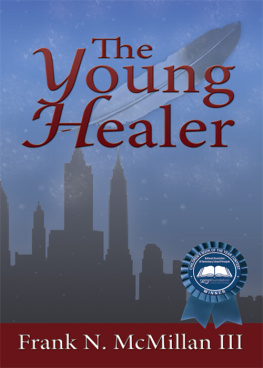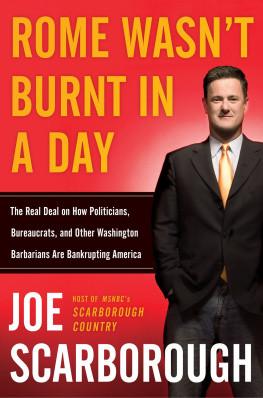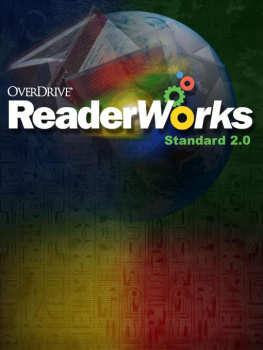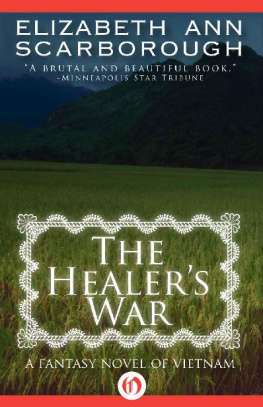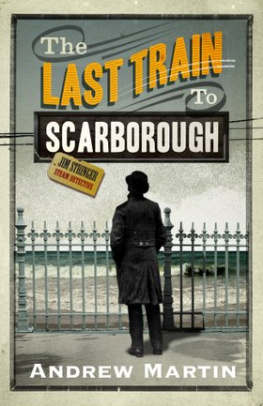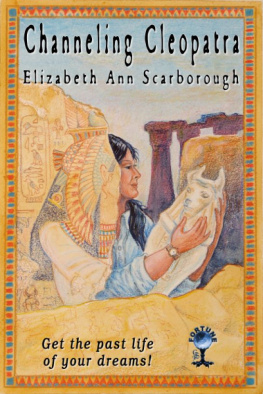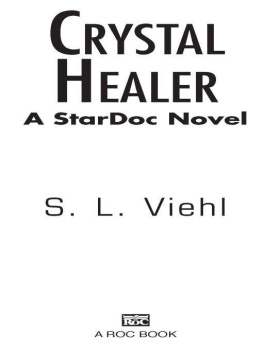Elizabeth Scarborough - The Healer's War
Here you can read online Elizabeth Scarborough - The Healer's War full text of the book (entire story) in english for free. Download pdf and epub, get meaning, cover and reviews about this ebook. genre: History. Description of the work, (preface) as well as reviews are available. Best literature library LitArk.com created for fans of good reading and offers a wide selection of genres:
Romance novel
Science fiction
Adventure
Detective
Science
History
Home and family
Prose
Art
Politics
Computer
Non-fiction
Religion
Business
Children
Humor
Choose a favorite category and find really read worthwhile books. Enjoy immersion in the world of imagination, feel the emotions of the characters or learn something new for yourself, make an fascinating discovery.

- Book:The Healer's War
- Author:
- Genre:
- Rating:3 / 5
- Favourites:Add to favourites
- Your mark:
- 60
- 1
- 2
- 3
- 4
- 5
The Healer's War: summary, description and annotation
We offer to read an annotation, description, summary or preface (depends on what the author of the book "The Healer's War" wrote himself). If you haven't found the necessary information about the book — write in the comments, we will try to find it.
The Healer's War — read online for free the complete book (whole text) full work
Below is the text of the book, divided by pages. System saving the place of the last page read, allows you to conveniently read the book "The Healer's War" online for free, without having to search again every time where you left off. Put a bookmark, and you can go to the page where you finished reading at any time.
Font size:
Interval:
Bookmark:
THE HEALERS WAR [065 5.0]
BY ELIZABETH ANN SCARBOROUGH
Synopsis:
Very realistic and chilling novel of an army nurse in Vietnam. Kitty finds herself alone in enemy territory with a crippled Vietnamese child, her only protection a mysterious amulet given to her by an ancient Vietnamese wise man. The touch of fantasy keeps this book from being a true nightmare. The author was a nurse in Vietnam herself and the descriptions in this novel are not for the squeamish.
Dedication This book is specifically for Lou Aronica, who asked the right questions.
It is also for my fellow Vietnam veterans, living and dead, male and female, military, civilian, and pacifist, American, South Vietnamese, North Vietnamese, Australian, Dutch, Laotian, Cambodian, Montagnard, Korean, and Chinese. And for our children, in hopes of arming them with hard questions to ask leaders selling cheap glory.
The perspective, extrapolations, fantasy elements, and selection of story material in this novel are entirely my own. This story is a work of speculative fiction, not an autobiography, although some of the more mundane aspects and background are based upon my own experience as a nurse in Vietnam. This work does not, however, claim to be representative of the viewpoint of any group or of any other person but me. However, I have obtained nonjudgmental help, support, information, and reference materials from the invaluable sources listed below.
I would most especially like to thank John Swan for generously sharing his experience as a field medic, combat soldier, Vietnam Veterans Outreach Center counselor, and human being, for helping me cope with the initial stages of this book, and for introducing me to the Fairbanks Combat Veterans Rap Group. Another debt is owed to a Vietnamese lady whose perspective was of real help but who prefers to remain anonymous.
Thanks also to Mack Partain; Megan Lindholm; Dr. Sharan Newman; Dr.
Peter Cornwall; janna Silverstein; Karen and Charlie Parr, my parents; Don and Betty Scarborough, my agent; Merrilee Heifetz, her assistant; Kathilyn Solomon and others at Writers' House; and Walt Williams of the Seattle Vietnam Veterans Outreach Center. In addition, I owe a great debt to all of the veterans who have been courageous enough to tell their stories, whether they thought what they had to say would be acceptable or not. Without their example I would not have been able to write my story. Particular thanks to Lynda Van Devanter, author (with Christopher Morgan) of Home Before Morning; to Cheryl Nicol, a portion of whose story is in 4 Piece of My Heart; to Patricia L. Walsh, author of the novel So Sad the Hearts, based on her experiences as an American civilian nurse who treated Vietnamese patients in Da Nang; and to Huynh Quang Nhuong, author of The Land I Lost, a portrait of the author's boyhood in rural Vietnam before the war. Also thanks to those who collected the stories of other veterans: Keith Walker for the excellent 4 Piece of My Heart; Kathryn Marshall for In the Combat Zone; Stanley Goff and Robert Sanders for Brothers: Black Soldiers in the Nam; Wallace Terry for Bloods; and Mark Baker for Nam, among many others. I owe special gratitude to Robert Stone for suggesting Dispatches by Michael Herr, to Shelby L. Stanton for advice on technical aspects of the story (all mistakes are purely mine, however), to Frances FitzGerald's Fire in the Lake, and to Jeanne Van Buren Dann and Jack Dann, editors of In the Field of Fire, for suggesting that writers of fantasy could have anything to say about Vietnam.
Glossary Author's Note Spellings are phonetic and meanings are approximate, not literal, translations. Many terms are not actually Vietnamese but pidgin. My apologies to any Vietnamese speakers for inaccuracies. I wish I had had your assistance when compiling this.
Ba: Vietnamese term for a married woman.
Bac si: Vietnamese term for a doctor.
Beaucoup: French for "much" or "many," used in pidgin VietnameseEnglish.
Bic. Vietnamese term for "understand." (Bicced is author's Americanizing of past tense.)
Cam ong: Vietnamese term for "thank you."
Cat ca dao: Vietnamese term meaning "cut off head."
Chung wi: Vietnamese term for a lieutenant.
Co: Vietnamese term for an unmarried woman or girl.
Com bic?: Vietnamese term for "Come again?" or "I don't understand."
Dao: Vietnamese term for "head."
Dau: Vietnamese term for "pain."
Dau quadi: Vietnamese term for "much pain." (Dau quadied is author's Americanizing of past tense.)
DEROS date (military jargon): The day a person can leave an assignment; in Vietnam, when one leaves country.
Didi or didi mau: Vietnamese or pidgin used often by GIs and Vietnamese; approximate meaning "Go" or "Go quickly."
Dinky dao: Vietnamese or pidgin for "crazy."
Dung lai: Vietnamese term for "Stop."
Em di: Vietnamese term for "Shut up."
La dai: Vietnamese term for "Come here." (La daied is author's Americanizing of past tense.)
Mao: Vietnamese term for a cat.
Mao hey: Vietnamese term for a tiger.
MOS: Military Occupational Specialty.
Sin loi: Vietnamese term for apology.
Tete or titi: Pidgin for French word petit.
TPR: Temperature, pulse, and respiration.
Triage: As used in medical emergency situations, this term refers to the process of sorting victims of a mass casualty situation or disaster into categories,. e., those who can be treated and released, those who can be saved by quick intervention, and those who will need more extensive help if they are to recover. The last category are those so seriously injured they will probably die without immediate, extensive care and may die anyway. In triage situations, patients are treated in the order listed, the worst injuries requiring the most care left until last so the greatest number of people can be treated.
Prologue The nightmares have lost some of their power by now. I can haul myself out of one almost at will, knowing that the sweat-soaked sheet under me is not wet jungle floor, that the pressure against my back is not the barrel of an enemy rifle or a terribly wounded Vietnamese but my sleeping cat. When someone in a suit or a uniform frowns at me, it doesn't always make me feel as if the skin over my spinal column were being chewed away by pointed teeth. Sometimes I can
*just shrug, and recognize the authority in question as an uptight asshole with no legitimate power over me-none that counts, that is, nothing life-threatening.
Still, most of the time, I retain the feeling that it's the nightmares that are real and my life here and now that is a dream, the same dream I dreamed in the hospital, in the jungle, in the Vietcong tunnels. I'm always afraid that someday I'll be dragged out of this dream, back to Nam, to a war that goes on and on for real in the same way it replays itself in my memory.
"That is what stops your power, Mao," Nguyen Bhu tells me. "You cannot provi 'de a clear path for the amulet's power until your own mind is clear. When you turn your face from your fear, that fear bloats with the power you give it. Look it in the eye, and it will diminish into something that is part of your life, part of your memory, something that belongs to you rather than controls you."
Nguyen Bhu sweeps the floor at his cousin's grocery store. Charlie says he's a former Cao Dai priest, a mystic like old Xe, and the wisest man to escape from Vietnam. He is sixty and looks ninety, has lost three fingers from his right hand, has more sense and is far less expensive than a psychiatrist whose lifelong concern has been to avoid obesity rather than starvation.
And most important, Nguyen Bhu knows what I have to say, and insists that it is not too much to ask people to believe and forgive. Charlie knows part of it, but he has his own nightmares to chase. Of the others who know, I keep hoping that at least one or two survived, and that someday I might see and recognize them among the refugees. One hope I have in writing this is that maybe they will read it or hear of it and find me, and we can heal together.
Next pageFont size:
Interval:
Bookmark:
Similar books «The Healer's War»
Look at similar books to The Healer's War. We have selected literature similar in name and meaning in the hope of providing readers with more options to find new, interesting, not yet read works.
Discussion, reviews of the book The Healer's War and just readers' own opinions. Leave your comments, write what you think about the work, its meaning or the main characters. Specify what exactly you liked and what you didn't like, and why you think so.


